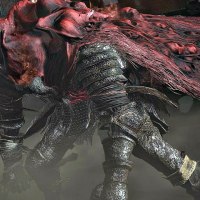Since 2012, games such as Clash of Clans, known as the ‘strategy combat’ sub genre, have been a major influence in mobile gaming. The idea is pretty simple — the player has a ‘base’ which they build while also having an army of sorts. After developing their defenses and army to a satisfactory extent, they find other players, attack their bases with their army, and use resources gained from combat or other measures to further heir offensive and defensive tools.
This piece seeks to evaluate one game which has entered the ring fairly recently. State of Survival started out as mostly a toothless joke when it launched in late 2019, but it has picked up some traction since then and its player base has consistently begun to peak in the modern day.
Is it a perfect game, though? Or even just one you should get into? Let’s talk about it, starting with what the game does well.
Pros
There is a large reward for cooperative play with other players.
In quite a lot of games, you’ll find clans or groups who join up and play with one another. However, some games don’t really provide a support system for this, so often the only benefit to joining a ‘clan’ is that you get to socialize with other people to a higher extent. While this certainly isn’t bad, there typically isn’t any tangible incentive to actually join a clan, so the majority of a player base, such as that of a Call of Duty game, probably won’t do that.
Narrowing it down to the strategy combat sub genre, this was an issue even in the legendary Clash of Clans. It took the game four years to offer a legitimate reason to actually join a clan. For a game that literally has the word ‘clans’ in it, this was somewhat ironic.
Here, however, joining a clan in State of Survival has an enormous amount of tangible benefits. For one, clanmates can invest resources in upgrading a structure or training troops to strengthen their army, then they can quickly select the “request help” option so that their allies can simply click a single button to speed up the rate at which these buildings are completed or troops trained. The time saved on these endeavors is significant juxtaposed to if a player was not a part of a clan; a building which would ordinarily require ten hours to be built can see that time be trimmed in half if a player is a part of an active clan, which is pretty wild!

Additionally, if a player is finding themselves low on resources, such as food or lumber, they can request donations from teammates, who can simply freely help their lacking clanmate out. Clanmates can also band together to pool their resources towards “Alliance Tech” which provides everyone involved with significant passive upgrades for doing so.
Finally, because Player-versus-Player combat is centralizing in this game, it stands to reason that a player which is significantly stronger than another could, in theory, attack that weaker player’s base over and over again, constantly making it hard for that player to get their sea legs underneath them if what little resources they do have are always being stolen. When a part of a clan, players can move their bases next to one another, and if someone tried to bully one part of the clan, it would be very easy for the others to, in essence, “counter bully” the offending player and protect their clanmate. So, being a part of a clan can deter or negate toxic behavior, which is undoubtedly a plus.
Players are rewarded for simply playing the game
You have your typical daily missions and gain resources from raiding other players or attacking zombie hordes. However, virtually everything a player does has a great chance of rewarding them. Even doing something as simple as fighting zombies will offer significant rewards. Not to the point of overkill and making the game a cakewalk, but to the point where micro transactions don’t seem mandatory to get ahead of players who do open up their wallets for the game. The structure of having microtransactions simply help with quality of life is good, as this makes the game accommodating even for those who are on a tight budget.
There are lots of choices for how to approach the game and be competitive
At the time of writing, there are currently just under 20 ‘heroes’ players can recruit to join their bases. Players are limited to using three of them at a time to attack other players, defend their own bases, or fight off zombies. However, there isn’t really a strict ‘meta’ to follow; if you came to State of Survival because you heard The Walking Dead’s Darryl Dixon was added to the game, and you wanted to use him, you could do so without fearing that he wasn’t as ‘viable’ as another hero, and would hold you back.
While this type of dynamic seems to weaken player choice in combat (after all, why bother if everything I do is always correct?) players still have to be smart when approaching a powerful foe, such as a strong zombie horde or a strong opposing player. The size of your army, the strength of your troops, the power of one’s clan and the strategic way in which battling is approached have a great deal of say in who the victor will be. However, if you like the idea of the hero Sarge being able to seemingly drop sentry turrets from the sky because you think it’s funny and want to use him, go for it. You’ll be no better or worse off than that Darryl Dixon fan who would prefer using him instead of Sarge.

There is an appreciable single player experience
Lost in all the hype of enjoying the game with your fellow players is that State of Survival also has a fairly compelling single player campaign and storyline as well. This is especially good as, if a player is playing late at night when all of their clanmates are asleep or otherwise occupied, they still have something fun to do in this game. This gives it good staying power as a whole, and is notably something Clash of Clans has never really done with their game.
State of Survival isn’t a completely perfect game. Let’s assess what it’s shortcomings currently are.
Cons
The game punishes you immensely for being inactive
Going on a weeklong vacation and want to put the game on the back burner? Simply getting tired of it and maybe want to take a break? Well, when you do decide to return, you’ll be taken aback when the game’s NPCs have thoroughly destroyed your base numerous times over and have ruined your walls and barricade because you weren’t there to constantly maintain them.
Unfortunately, you really do have to commit to this game if you want to ever get out from underneath the ‘noob’ status. Taking so much as a single day off from playing will witness an ‘infected horde breach’ take place. Your base will constantly get slammed by this until you return to the game, and the infected horde in question will always conveniently be powered up to be just a smidgen stronger than your base can handle. This will completely stymie your farms and lumber yards, making it impossible for them to generate resources passively like they usually do.
The idea behind this mechanic was likely to deter players from relying on their passive buildings to do the work for them. Still, this game punishes you very hard for being out of commission for a day or two, so keep that in mind if you do decide to play it.

The State system
As it is, depending on when the player first starts playing, they’ll be entered into a ‘State’. At the time of writing, there are almost one thousand total States which harbor a few hundred players each. Unfortunately, players cannot venture outside of their States, and are relegated to interacting strictly with those within their State.
This can make the game feel a good bit smaller than it actually is. If a player entered a State in which most other players eventually stopped playing the game and became inactive, that particular player would be kind of screwed and may need to start a new account entirely. Additionally, playing with only the same players in a small pool all the time could get boring. Worse yet, if there are more ‘bullies’ than usual in one’s particular State, it could make trying to simply play the game oppressive if that player cannot get into a good clan.
The State system should realistically be reworked and players should be allowed to migrate to other States if desired. This would open the game up a lot and correct the aforementioned problems.
Global and State chat rooms
Currently, when players first join the game, they are given the option to enter chat rooms, one of which welcomes everyone on the game, and the other is intended for players in that particular State.
Unfortunately, States are not determined by the user’s real world location or fluent languages. This has led to an issue where a player who mainly or only speaks Spanish may be in a State where others speak English, Italian or Japanese, and there is an irritating language barrier that can make communication difficult. To be fair, there is an in-game translator which can be used, but it only translates what the foreign words mean literally, so deeper meaning, slang or various cultural dialect can be lost in these translations. It would be good if there could be an alternate third chat where players could be entered into based on their ‘preferred’ language. As is, being able to actually fluently communicate with others is sort of a crapshoot as is, which could potentially make the game feel even smaller.
As is, the game deserves a grade of a B. It is fairly addicting and can be a lot of fun, but it has noticeable shortcomings which limit its potential. Still, the game itself is free to play, so those on a budget could easily enjoy this one quite a lot.





Leave a comment